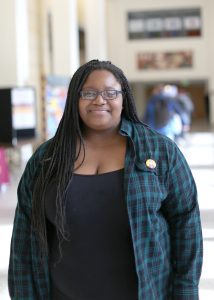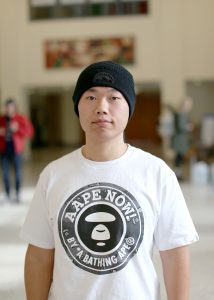
On January 27, President Donald Trump signed into action an executive order entitled “Protecting the Nation from Terrorist Entry into the United States by Foreign Nationals.” The order includes a ban (with certain exceptions) on immigration into the United States from seven countries: Iran, Iraq, Libya, Somalia, Sudan, Syria and Yemen. The Association of International Educators stated that “[A portion of the order] leaves open the designation of other countries, and so the list of 7 countries could be expanded on that basis.” There has been speculation about countries being added to this list as time progresses. The ban was originally set to last for 90 days, with an additional 40-day suspension of admission of refugees; 120 days suspension in total.
However, on Feb. 3, the U.S. District Court for the Western District of Washington in Seattle granted a temporary restraining order on the section that establishes this ban, on the grounds that it simply is not constitutional. U.S. Customs and Border Protection responded by stating that the order is “lawful and appropriate” and that “The Order is intended to protect the homeland of the American people.”
In the wake of the drama and controversy of this executive order, Concordia has responded by taking measures to make its international students feel safe.
Concordia’s International Community and Global Learning offices sent each international student an email in reference to the executive order, laying out the implications of the order and how it may affect students living in the U.S. without citizenship. One of the first statements in the email says that “No Concordia student has yet been denied U.S. entry or reentry” because of the ban. It also details Concordia’s recommendations to students who are considering traveling abroad: firstly to “consider carefully whether travel outside the country at this time is worth the risk,” and to be well-informed and up-to-date on the order as it changes over time. The email closes with an invitation to all international students to check in with the Global Learning office and ask questions about the order.

Several of the students who went to check in have concern and frustration.
“As a president, I don’t think he can do this,” said Tian Wei, a first year immigrant student. “[The order] influences the whole world, not just a single country.”
A first year student from China, Bocheng Huang, said that the whole situation makes him “kind of sad. But I can’t do anything.”
One student in particular, Anita Ukpokolo, had several comments about both the ban and the atmosphere of the college in the aftermath of the order. Ukpokolo, born in Nigeria, has been living in the U.S. with a green card — identification that proves one’s permanent residency and grants permission to live and work in the U.S. When she saw that the immigration ban was extended to green card-holders, she became very concerned.
“It takes a lot of work just to seek refuge in America,” Ukpokolo said. “[Green card-holders] are taking all those steps to get citizenship, and now it feels like we’re being taken back a step.”
Ukpokolo has become vocal about American politics both in person and on social media. She says she has a certain responsibility to share her experience and opinion.
“I hear a lot of comments from fellow students [on campus] like: ‘Well, you should just go get your citizenship.’ Well sure, I’ll just go down to Walmart for it, it’s right next to the cell phones,” Ukpokolo said. She has even received remarks like this from a Concordia staff member. Ukpokolo’s name is spelled incorrectly on her green card, which causes some difficulty with paying tuition every semester. One staff member of the financial aid office was very impatient with the incorrect information, telling Ukpokolo that she “really [has] to get that fixed,” clearly showing no empathy or understanding of how long such a process would take. She says it’s these situations that remind her that she needs to speak up.
Despite these unfortunate circumstances, many international students are gracious for Concordia’s quick and welcoming stance, mentioning both the most recent message from President Craft and their professors’ willingness to listen to their side of the matter.

“Although it may not affect me,” said Utsah Shrestha, a sophomore from Nepal. “It might affect someone else very seriously, so it’s nice when there’s someone to listen to you. The messages [from the college] are soothing.”
One of these soothing messages was a campus-wide email addressing the immigration ban, written by President Craft. He wrote that Concordia “urges all members of [the] international community to be well informed” about our country’s current affairs. He also quoted Concordia’s mission statement: “[our] purpose is to influence the affairs of the world by sending into society thoughtful and informed men and women dedicated to the Christian life.” He then talked about our duty as people to stand with our neighbors in the face of their struggles, no matter their citizenship status. The message’s closing statement is perhaps the most poignant: “Let there be debate. Let there be honesty and mutual care. We lift up the dignity of every soul.”


Why would international students’ opinions be more salient than that of American students? Once again the PC College culture wins. Unless these international students are planning to immigrate here, this temporary ban has ZERO impact on them.
“Ukpokolo, born in Nigeria, has been living in the U.S. with a green card….When she saw that the immigration ban was extended to green card-holders, she became very concerned.”
Um- the ban doesn’t affect Nigerians.